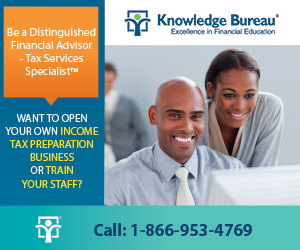Last updated: January 16 2018
Tax Reforms: An Opportunity to Contribute to Financial Literacy

Some things never change: like their U.S. counterparts, Canadian taxpayers once again find themselves in the midst of tax reforms. The current one has been released in dribs and drabs, strategically in the just before or during holiday periods and with very short consultation periods. Should you be concerned?
Tax reform affects everyone’s financial future; federal budgets and tax reforms are about what’s coming up and how people need to respond to change to secure those futures.
Releasing important and complex proposals with consultation periods that are too short, or at times Canadians may not see them (example: the July 18, 2017 release of proposals for the taxation of private corporations or the December 22, 2017 release of long term economic projections), or with expensive and retroactive financial implications, all thwart proper analysis and debate and as a result, contribute to a lack of financial literacy in Canada.
That’s most unfortunate. Reforms void of proper analysis and debate may also have a significant effect on Canada’s tax competitiveness at home and abroad. This comes at a critical time in the labor force: baby boomers are starting to retire in droves and that reduction in the tax base has serious implications. It is important that private business enterprises – who are significant employers in Canada – can assess their tax risk.
This includes how to cope with new complexity and the grey areas that have recently been created by untested tax law. Taxpayers are now accountable to a much more powerful CRA tax auditor, newly armed with hundreds of millions of dollars for enforcement and collection activities. Except in the case of tax evasion – where CRA must prove you defrauded, with intent - the burden of proof is always with the taxpayer.
The responsibility is reciprocal, however. Taxpayers have rights to timely and correct information from their tax departments, as well as the right to have their taxes assessed with consistency, and to appeal if they disagree with the results, within reasonable time frames. However, the taxman has deeper pockets for legal challenges.
 |
Ultimately federal and provincial budgets are about what’s affordable against the revenues that are collectible from a healthy eco-system of willing taxpayers. Financial literacy – the knowledge, skills and confidence to make responsible financial decisions – begins with the most important financial document of the year for millions of Canadians – the tax return.
Understanding reforms is an important and expensive responsibility, especially when you think of the tax consequences of non-compliance. Taking proactive leadership in asking more probing questions of your MP and your trusted knowledge authorities is critical. Taxpayers need to know what new budget provisions really mean to their finances over the near term and in the long term.
Tax leadership may also be about speaking up, getting involved and letting governments know if you think they are on the wrong track. That opportunity will arise again soon, as federal and provincial finance ministers get ready for budget season, just around the corner.
Additional Educational Resources: We invite you to learn more about Business Leadership, Culture and Continuity, a new course in the Executive Business Builder Program; and to expand and specialize in personal tax preparation under the DFA-Tax Services Specialist Program, and in corporate tax preparation and planning for owner-managers under the MFA – Business Services Specialist Program.
Evelyn Jacks is President of Knowledge Bureau and author of the New Essential Tax Facts: How to Make the Right Tax Moves and Be Audit-Proof, Too, available in February. Pre-orders accepted now. Follow Evelyn on twitter @evelynjacks.
©2018 Knowledge Bureau Inc. All Rights Reserved.





